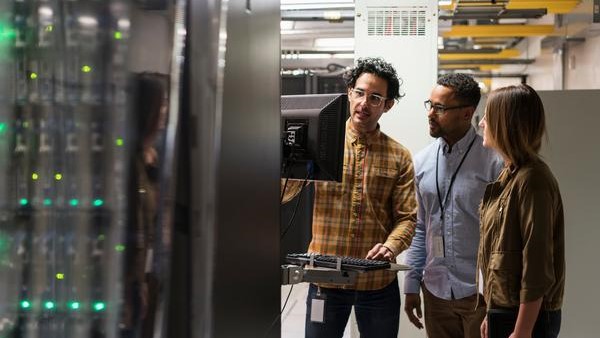Christy Acton, founder and CEO of Birmingham non-for-profit Standing Tall, says businesses can make a huge difference by creating stable jobs for people who’ve experienced homelessness
As we re-build again after the pandemic, there’s a precious window of opportunity to do things differently, and to build workforces that better reflect our diverse communities. But employers need to think laterally… and look in unexpected places.
In the wake of Covid, a recent article from the Institute for Public Policy Research has shown the UK to be going through a lopsided job recovery. Many of the jobs hit by the pandemic haven’t returned. Meanwhile we see some sectors struggling to fill vacancies. Whichever industry you work in, finding new staff with the right attitude and experience is a never-ending challenge.
Standing Tall is a Birmingham not-for-profit matching individuals who have experienced homelessness with stable jobs in local businesses. We’re working to get 20 individuals into jobs in Birmingham this year. Alongside a job, we ensure these individuals have a safe home through our Amici hosting accommodation service. Our hosts are Birmingham residents with a spare room, who we support and pay to welcome an individual into their home for six months.
I often hear businesses asking what practical things they can do to help with social issues such as homelessness. But it’s staring them in the face. The power a business holds is in being a local employer, in actively employing a more diverse workforce and helping individuals who are battling disadvantages.
There are so many ways now for a company to be a force for good. Being a responsible business increasingly encourages consumers and businesses to choose your products. Plus you have the potential to limit your carbon footprint. But one way that you could make real change right now is by adopting the real living wage (£9.90 per hour in the West Midlands), which has an immediate social impact.
October 10 this year is World Homeless Day, drawing attention to the needs of people who experience homelessness in our local communities. It’s deliberately timed for the approach of winter of course, a time when it’s only natural for us to think more about individuals who find themselves sleeping out on the streets. We’ve seen action to combat homelessness of course: the Government’s Everyone In initiative at the beginning of the pandemic significantly reduced the number of individuals living on the streets. But… the numbers are returning to pre-pandemic levels.
It would be easy to assume that someone experiencing homelessness might have little to add to your workforce. But individuals who’ve been through tough times actually have a great deal to add to your organisation. One of Standing Tall’s Partner Businesses is M Lambe Construction, based in the Jewellery Quarter in Birmingham.
Lambe’s HR and Wellbeing Manager, Shane Kiely, says: ‘We employ around 600 people and want 10 per cent of our workforce to be people who are experiencing homelessness. People committed to changing their lives can excel when given a chance; with the right support these candidates can be extremely loyal and worth their weight in gold.’
At Standing Tall, we consistently receive feedback from our partner businesses telling us how reliable these new employees are. Having been through tough times, they have real resilience to offer and challenge the preconceptions some of their colleagues might have had.
This is not exclusive to individuals who have experienced homelessness of course. Diversity comes from many quarters. Aside from diversity of race, ethnicity and religion and others, it comes from diversity of life experience. Individuals who have been through the prison system have much to offer. Timpsons is a shining light with more than 10 per cent of its workforce having been through the prison system.
Creating a diverse workforce is good for everyone. Your organisation can draw on those people’s wealth of experience to respond to challenges that arise. You are doing everything you can to future-proof your business by building a workforce that mirrors the real community of your area. And your firm embeds itself in its local community by developing the skills and experience of its employees. In turn, these responsible employers are building the capacity of the local workforce.
So this is your opportunity to challenge how things are. The world has been turned on its head over the last 18 months, but it has made us realise that we can make good change happen. If you’re committed to playing your part, as an employer, you hold real power in your hands. Your next hires are out there, but you’ll probably find them in the most unexpected of places.
Christy Acton is the founder and CEO of Standing Tall. He has worked in a range of not-for-profit roles in the West Midlands over the last 15 years, with neighbourhood community roles for Midland Heart, Birmingham City Council, Housing Plus and Father Hudson’s Care

Become an RSA Fellow
The RSA Fellowship is a unique global network of changemakers enabling people, places and the planet to flourish. We invite you to be part of this change.
Related articles
-
Preparing for the Future of Reward
Fellowship news
The world of work is changing fast. We only need to look back five years to realise how fast the expectations, locations, needs and management of the workforce is being transformed. What will 2050 look like?
-
-
An idea worth stealing
Comment
Edward Lowe
Watching how software engineers work could revolutionise how we build products and services, and give employees more interesting and fulfilling work. Edward Lowe talks Tesla, Henry Ford and a lesson from the slaughterhouse




Be the first to write a comment
Comments
Please login to post a comment or reply
Don't have an account? Click here to register.